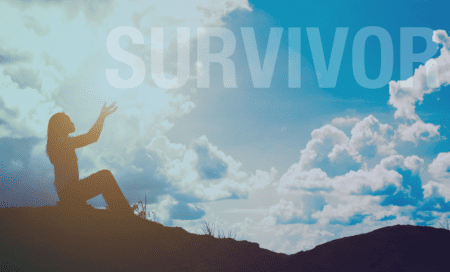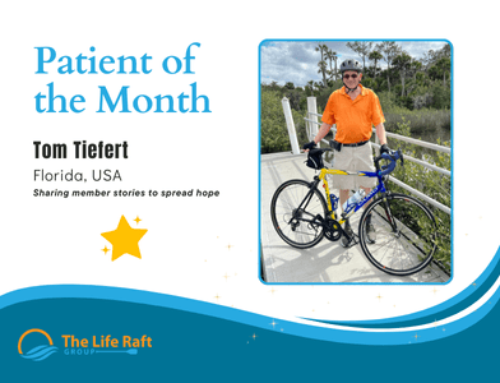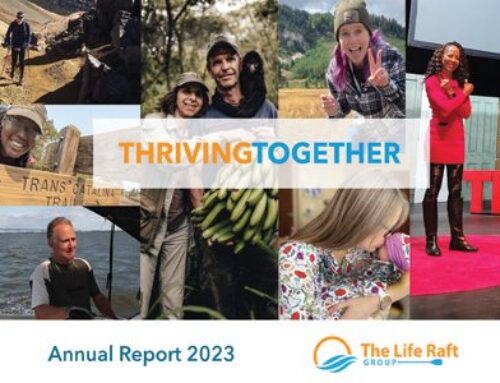 A story about a cancer survivor recently appeared in the Washington Post: “This is not the end; Using immunotherapy and a genetic glitch to give cancer patients hope”. The story is about a young woman, Stefanie Joho, at the end of her treatment options. With one last attempt at an experimental therapy, she has an amazing response to a recently approved immunotherapy, Keytruda.
A story about a cancer survivor recently appeared in the Washington Post: “This is not the end; Using immunotherapy and a genetic glitch to give cancer patients hope”. The story is about a young woman, Stefanie Joho, at the end of her treatment options. With one last attempt at an experimental therapy, she has an amazing response to a recently approved immunotherapy, Keytruda.
The story about the treatment is an interesting read; the story of an already approved drug being used for a colon cancer patient, a condition for which it’s not approved. It is a story about an underlying genetic defect that predisposes a patient to have more genetic damage than the typical cancer patient. Keytruda, and other drugs in this class (PD1 inhibitors), have already been suspected to work in cancers that have more genetic damage. It’s thought that it’s easier for the immune system to recognize a cancer with more genetic damage as something foreign and attack it than a cancer with less genetic damage.
The article itself is a great read, but I’m not going to retell it here. You can read the entire story at this link. Equally fascinating, and perhaps more useful to GIST patients, is the story of what it took for this young woman to find and participate in the trial that saved her life.
To save her life, Stefanie Joho had to step outside the normal path of cancer patients. She had to rely, not on what she was told was possible, but what she herself, with indispensable help from her family, discovered to be possible. Stefanie had been told by her oncologist that he was out of options, but he mentioned that some interesting work was going on in immunotherapy. However, her first attempt at following up this lead led to a dead-end when the hospital immunologist told her that no suitable trials were available.
It was Stefanie’s sister, Jess, that did the initial homework, searched for and found the clinical trial that resulted in the amazing response. As detailed in the Washington Post article, “For Joho, now 27 and living in suburban Philadelphia, the hard lesson from the past few years is clear: The cancer field is changing so rapidly that patients can’t rely on their doctors to find them the best treatments. “Oncologists can barely keep up,” she said. “My sister found a trial I was a perfect candidate for, and my doctors didn’t even know it existed.” . . . “I got chills all over my body,” Joho said. “To think that I was at the end of the road, with no options, and then to be part of such a change.”
I have long known that being a proactive educated patient could improve a patient’s survival. A few people might challenge such a strong description as known. I will concede that it doesn’t help every patient. There are examples of patients doing nothing except what they were told doing well, as well as cases of where very proactive patients did not benefit from their activism, and even cases where they made their situation worse. However, I have seen or heard of countless cases where their knowledge, drive and activism made a huge difference.
Let’s take a closer look at a few of the lessons one can learn from Stefanie Joho.
When your oncologist says that he or she is out of options; it doesn’t necessarily mean that you are.
- When your local hospital says they don’t have a trial for you; it doesn’t mean that no trial for you exists elsewhere.
- Help from family or, less frequently, friends, can have a huge impact. It may be a case of someone that is more tech-savvy than you are. It’s also difficult for many cancer patients to focus on research when they are often sick, often depressed and trying to come to grips with their own mortality. In many cases, a spouse or significant other, brother, sister, son, daughter, or mother or father can help with research, calls, appointments and all sorts of things. Take help if offered; ask for it if you need it, just remember that in the end, you control final decisions. Sometimes you will have to “weed out” potentially bad advice from the good.
- Don’t be afraid to participate in clinical trials; but do your homework. How did you find out about the trial? Did you find it; or was it recommended to you? Understand that some trials may be offered to you, not because they are your best option, but because they are in the best interest of those offering you the trial, such as to “fill” a slot in a local trial. That’s not to say all local trials are bad, but you should understand that the trial that is the most rational in terms of your chances of response, may not be offered locally.
- (Okay, so this one wasn’t in the article, but. . . ) Being an effective proactive cancer patient requires you to become informed about your cancer. One of the best ways to do this is to join a support group for the same type of cancer that you have. By being in touch with many people (often hundreds) with the same cancer, you can tap into their shared knowledge. Find out about new drugs, new trials, expert doctors, the best hospitals, side effect management and countless other subjects.
- Learn how to evaluate evidence and information. This is not an easy or a quick task, but it’s an important one.
In addition to the lessons that can be learned from the article, there are some lessons, both positive and negative, that can be learned by reading the comments from readers at the bottom of the article. Look for common threads about survival tactics from the readers. It’s fair that some commenters point out that not everyone is eligible for a clinical trial, trials don’t help everyone, medical care is too expensive, etc., but there are still a lot of common threads in the comments.
If you have an example of how being an educated proactive patient made a difference (hopefully good, but bad as well) I hope you will share it in the comments section of the article, but also share it with us at the LRG. Send your examples to mgarland@liferaftgroup.org.



